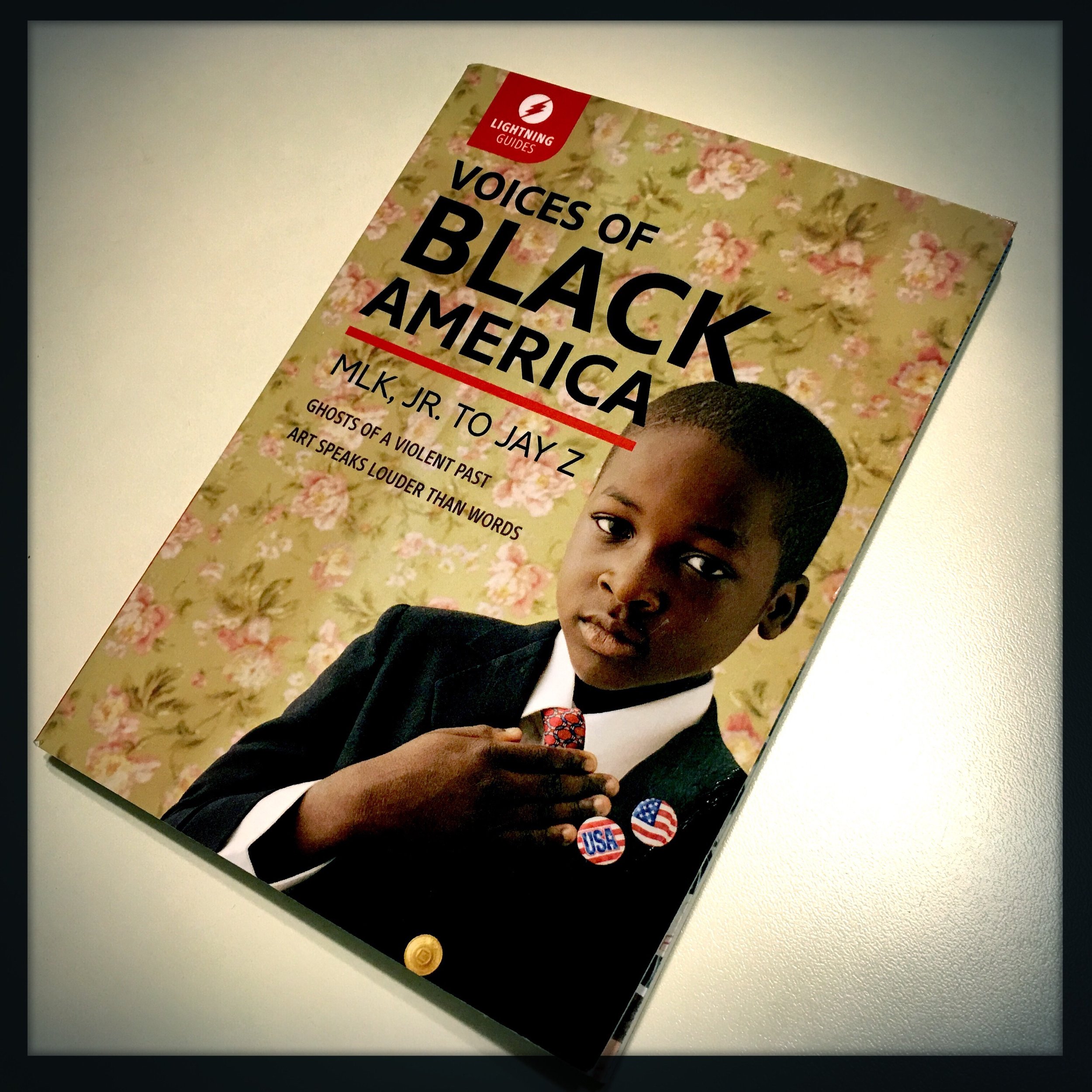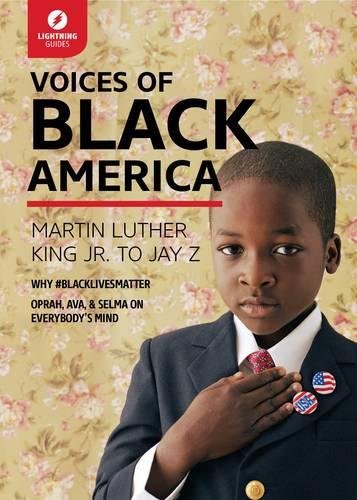Voices of Black America: MLK, JR. to Jay Z. (Book Review)
Thanks for stopping by. Are you new to Black and Bookish? Please take a look around. Here are the books I've read and reviewed, or you can start here to get an overview of who I am and what I do. Don't forget to subscribe to get news and posts sent straight to your inbox.
This post contains affiliate links.
The First Official Black & Bookish Post
The first post! I have been agonizing over what book to showcase, and this one fell right into my lap at the perfect moment.
Here is a little backstory: I'm black. From head to toe, of medium, dark-brown skin, topped with shoulder length, dark, kinky-curly hair. I have always been black, and proud to be. I have friends from different cultural backgrounds, so I have been told numerous times that I do not "fit the stereotype." I'm not usually offended, but this last time was a little different...
A friend mentioned they had learned “a lot” about black culture online, and completely attributed this new knowledge to Wikipedia. I was a little appalled, naturally, and commented that it would have been better to learn about Black culture from sites or books written by black authors, watched movies by black filmmakers, or listened to music by black artists. I dismissed Wikipedia as the starting line for appreciation into a long and complex history, or as a way to immediately understand a diverse group of people. Then, for dramatic flair, they asserted that they had learned more from wiki about black people in one evening than in the 15 years of our friendship. My life had not allowed this individual to experience the culture in the way they saw acceptable- or, more accurately, authentic. “This is just a starting point,” they said. Why was their view of blackness too narrow to add me? Had I been misrepresenting my ENTIRE culture for the last 31 years? Can I, as a single individual, even stand in place for every black person, at all points in time? (Hint: I don't think so.)
The next day, I happened to find this book at a local independent bookstore, in the African-American studies section. It was colorful and compact, and as I flipped through, noted all the helpful timelines and charts. It was a short history of art, literature, music, and culture starting in the 1960s.
This book, this little “guide book," is a much better starting point, especially if you are looking to connect the events of our past, to our present cries of injustice. I have not been able to find the name of the specific editor (and therefore can not verify if it fits my "written by a black author criteria" for 2016), but I'm using this as my starting point for you, my dear readers of Black & Bookish.
Written with admiration for the black protest movements, Voices of Black America paints a vivid picture of adversity over oppression. The author presented the matter of fact ideas of Jim Crow and continual racist policies that have plagued us since. There are even comments on MLK becoming more militant in his last years of life! It talks about how hip hop started as a way to express black pain and was co-opted by white media and sold for profit.
I loved the section called Celebrities Give Voice to Struggle (pg 30). People have lost their careers, let alone their lives, for speaking out against racism, but they did it anyways. Before civil rights, a time of much more overt racism, it was more common to be told in public you were unwelcome. To your face. Nowadays, black celebrities can appear to be well liked on all fronts, until they speak out- like Jada and Will in their boycott for the upcoming Oscars. Regardless of how you feel about these specific actors, know that black people have been fighting this fight since we were brought here.
It's been a while since I read a historical perspective that felt pro-black. Unlike the sterile Wikipedia page, this book shows what historical black pride looks like, where facts and figures have been cold and distant, not relaying the accomplishment and empowerment of the people. It felt almost radical. These small snippets of black history, bite sized and easily digestible, remind me of why I still fight for my civil rights. It gives me pause to embrace my shared past with others like me, and educate those who have not yet learned about these life-changing events.
When I was a child, I was convinced I was special, but not in an acceptable way. I was unlike others around me, nose stuck in a book. Once I got older, I realized many young African-Americans experienced the same type of life I have- became highly educated, went to great schools, and was living in poverty. I was straddling two worlds and didn’t even know it. Books were my windows to the future, and I was able to carve my way out of the ghetto and into college.
When someone tells me I am not black enough or that I can’t be full of black pride, they are essentially shunning the culture I come from, and erasing the person I am. I will not be left out of my story because I do not talk or dress a certain way. Voices of Black America reminded me to continue this amazing fight: fight to be heard, to show solidarity, and to represent what blackness is to me.
*****
Did you "like" this post? Don't forget to comment below and share with others!
About the Author
Black & Bookish is the brainchild of Antoinette Scully, educator and lover of all things bookish. She is on a quest to fill your bookshelves with beloved authors of the African Diaspora. When she's not hanging out online, she's living it up as the mother of two rambunctious girls and wife of a local filmmaker.


